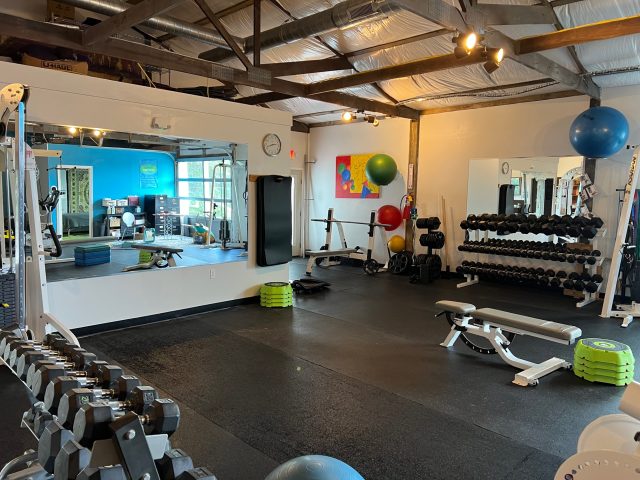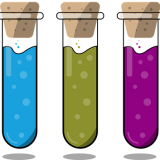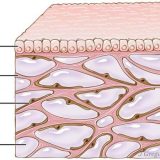Irresistible: Why We Can’t Stop Eating..Food Industry Hacks on Us

While pedaling away on a stationary bike, a video from a BBC documentary popped up on my Instagram feed with a Doctor of medicine and academia speaking about the food industry’s ultra-processed foods. It offered some eye-opening insights about the food industry. Film is “Irresistible: Why We Can’t Stop Eating” by medical doctor Dr Chris van Tulleken . It delved into how food companies manipulate our choices and cravings, and it got me thinking. Inspired by the documentary, I dug deeper into additional research and perspectives that might be “food for thought” for you as well.
The key takeaway? It’s time to deprogram yourself—recognize the subtle ways your food choices are influenced and how they impact your daily health. Take control, challenge the systems working against you, and reclaim your well-being. Break free from the cycle of engineered cravings and start making mindful, empowered decisions!
I’m not one to let people off the hook when it comes to owning their poor habits or behaviors—that’s a foundational step in achieving health and wellness success. However, the idea that obesity rates began climbing sharply in the mid-70s solely because of a sudden, multi-generational collapse in willpower doesn’t add up. The real culprit lies in the food industry, which, through marketing and engineered products, has created an environment ripe for food addiction. This isn’t just anecdotal; research shows that ultra-processed foods are designed to hijack our brain’s reward systems, making moderation incredibly difficult. It’s a calculated, profit-driven trap that we need to recognize and navigate intentionally.
Did you know the term for food addiction is loosely defined as hedonic eating behavior involving the consumption of highly palatable foods (ie, foods high in salt, fat, and sugar) in quantities beyond homeostatic energy requirements.
Why are ultra-processed foods so irresistible, and how they have come to dominate food culture?
The documentary “Irresistible: Why We Can’t Stop Eating” by medical doctor Dr Chris van Tulleken features interviews with former food industry insiders who talk openly about the way in which popular foods have been designed to be irresistible. He’s and infection Doctor, broadcaster and involved in academia.
Ultra-processed foods are hyper-delicious and super-convenient, have long shelf lives and are extremely cheap. But a growing body of evidence is linking these products to our declining health.
Some of these terms I heard in the documentary I thought you might want to know as they are targeted at making us addicted. Whole foods such as whole grain foods, fruits and veggies aren’t addictive and have more calorie nutrient dense qualities as opposed to high calorie low nutrients food in the ultra-processed or engineered food.
Food addiction, loosely defined as hedonic eating, is the tendency to consume highly palatable foods—rich in salt, sugar, and fat—in quantities far beyond what our bodies actually need. This isn’t simply about willpower or bad habits; it’s a biological and psychological response driven by the food industry’s relentless pursuit of making products that are impossible to resist.
Why Ultra-Processed Foods Are So Irresistible
1. The “Bliss Point”:
Food scientists, such as Howard Moskowitz, coined the term “bliss point” in the 1990s to describe the perfect combination of salt, sugar, and fat in food products. This “just right” flavor balance maximizes pleasure, making it nearly impossible to stop eating.
2. Vanishing Caloric Density:
Many ultra-processed foods, like cheese puffs or ice cream, are designed to melt quickly in the mouth. This tricks the brain into believing you haven’t consumed many calories, delaying the signal to stop eating and encouraging overeating.
3. Soft Foods:
Foods requiring minimal chewing, such as white bread or pudding, or even a cheeto that is only initially crunchy but is soft and disolved quickly in the mouth bypass the body’s natural fullness signals. They lack fiber and other nutrients that help regulate hunger, leading to overeating. Soft foods short circuit the satiated or feeling of fullness in your brain and stomach making you overeat these foods that tend to be easy to swallow, digest, and break down without much chewing. They are often low in fiber and nutritional spices, and high in simple carbohydrates.
4. Sensory Manipulation:
The food industry uses sensory panels to perfect textures, sounds, and even the crunch of foods, creating a multi-sensory experience that reinforces cravings. For example, the satisfying sound of a chip breaking or the smooth texture of ice cream heightens the pleasure of eating.
5. Sonic Branding:
Sound also plays a role. Jingles like “I’m Lovin’ It” (McDonald’s) or brand-associated chimes (Netflix, Apple) may create emotional connections with food products if watching or using with food. These auditory cues can trigger cravings, similar to Pavlov’s classical conditioning experiments with dogs. Food companies go to extraordinary lengths to ensure their products connect with consumers – from using brain scans to assess the deliciousness of ice cream to carefully engineering the sound of a crunch. Just think “Snap/Krackle/Pop”
The Impact of Ultra-Processed Foods on Health
Ultra-processed foods are not just hyper-palatable; they are also linked to numerous health issues, including obesity, type 2 diabetes, and heart disease. A growing body of evidence shows that these foods are nutrient-poor, calorie-dense, and designed to override natural satiety signals, pushing us to eat more than we need.
Steps to Take Back Control
- Acknowledge the Addiction:
Understand that overeating ultra-processed foods isn’t just a lack of self-control; it’s a conditioned response driven by the food industry’s design. Be kind to yourself as you work toward breaking free from this cycle. - Choose Whole Foods:
Shift your focus to nutrient-dense whole foods like vegetables, fruits, and whole grains. These foods are naturally satisfying, packed with fiber, and far less likely to trigger overeating. - Be Mindful of Triggers:
Identify the environmental cues that lead you to reach for unhealthy snacks, whether it’s a specific location (e.g., your couch) or a time of day. Replace those habits with healthier routines. - Plan Your Meals:
Planning meals in advance can reduce the temptation to grab convenient, ultra-processed foods. Incorporate balanced meals with a mix of protein, healthy fats, and fiber to sustain energy levels. - Educate Yourself:
Documentaries like “Irresistible: Why We Can’t Stop Eating” by Dr. Chris van Tulleken expose the food industry’s tactics. Use these insights to recognize how marketing influences your choices and combat their effects. - Quit the Cycle:
Breaking free from food addiction starts with removing the substances triggering cravings. While challenging at first, eliminating or significantly reducing ultra-processed foods is the first step toward resetting your palate and breaking the cycle of dependency.
Final Thought
The food industry has spent decades and billions of dollars engineering products to exploit our cravings. Pizza, Chocolate concoctions and ice-cream aren’t natural foods. You have the power to take control. By acknowledging the manipulation, educating yourself, and prioritizing whole, nutrient-dense foods, you can break free from the cycle and reclaim your health.
Your health is worth the effort. Start today, one mindful choice at a time. Enlist the help of other people that purchase foods than enter your home. If they wish to have these foods and you just can’t resist then ask them to store away from you “out of sight – out of mind” so you can get on track with your health and fitness goals which often start in the kitchen. You’ve heard me say it many times…You can’t outwork a bad diet!
______________________________________________________________________
 Why Choose Energy Fitness?
Why Choose Energy Fitness?
Energy Fitness is a boutique fitness studio offering personalized fitness solutions through:
- Onsite Personal Training: Available by appointment in the Greenville/Travelers Rest area of South Carolina.
- Online Personal Training and Nutrition Coaching: Accessible via Zoom, so you can train from anywhere.
We cater to busy executives, business owners, working parents, and retired active individuals aged 40-70. We are not a membership based big box gym—we provide a tailored fitness experience. We accommodate injuries and optimize your time with 30-minute semi-private sessions.
Explore Our Services
Check out our onsite facility in Travelers Rest, where most of our clients train twice a week. Our state-of-the-art, 2,000-square-foot facility is designed for optimal training and comfort. We also serve a wide range of online clients who enjoy the same personalized attention and accountability as our onsite members.
Our packages include:
- Personal Training Sessions
- Meal plan suggestions / Supplement Suggestions if desired
- Fitness Assessments including -Functional Movement Screening: This helps us assess your starting point and understand the quality of your movement, so we can design a program that suits your needs and goals.
Invest in Yourself Today! We invite you to click here to schedule a FREE onsite or virtual fitness consultation (valued at $87). Let’s discuss your goals and explore how our programs can help you achieve them. Call or text us at 901-466-6242 to get started or to learn more about our services.
Why Get A Functional Movement Assessment?
If you haven’t had a functional movement assessment with a professional, you might not be getting the most out of your current strength training, flexibility, or cardio program. Let us observe how you move your hips, shoulders, wrists, and spine to ensure you’re on the right track. Our team can help you reduce or eliminate pain, improve your current program, and enhance your athletic performance.
 Tonya Tittle, M.S / Owner
Tonya Tittle, M.S / Owner
American College of Sports Medicine-Exercise Physiologist
Licensed Massage Therapist
Titlest Performance Institute Level 1
Metagenics First Line Therapy Certified
898 N. Hwy 25 Bypass, Greenville, SC 29617 (Travelers Rest)






